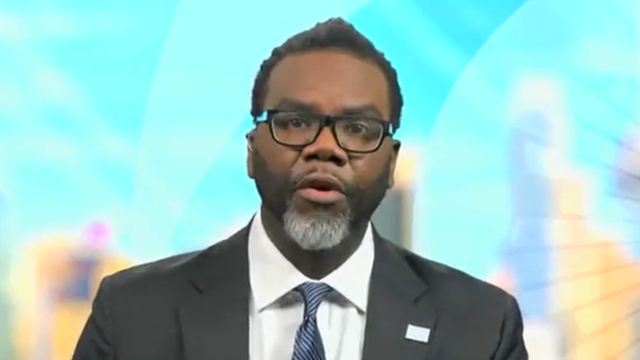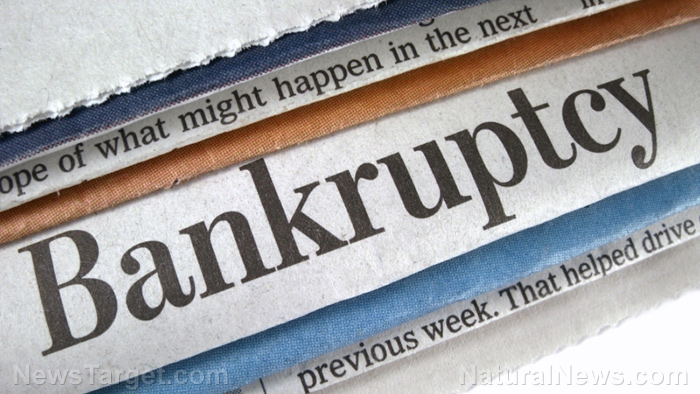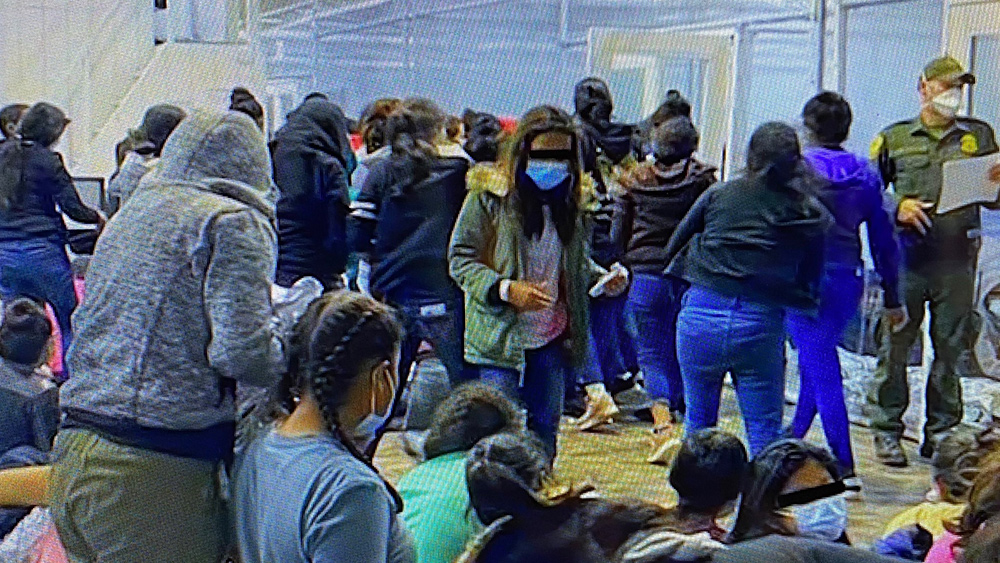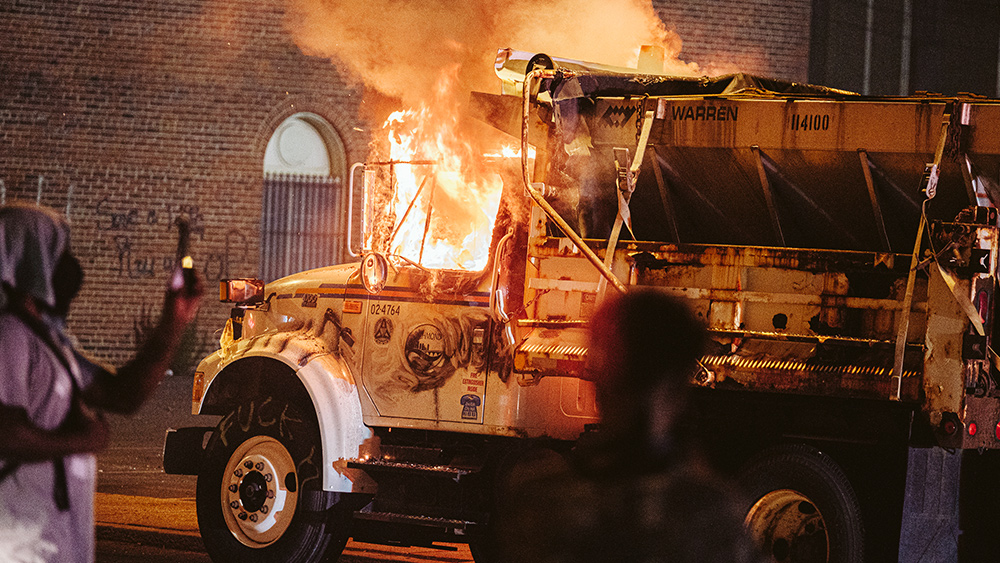Evergrande Group files for bankruptcy in the U.S. after two years of distress… debt defaults will now spread across America
08/21/2023 / By Richard Brown
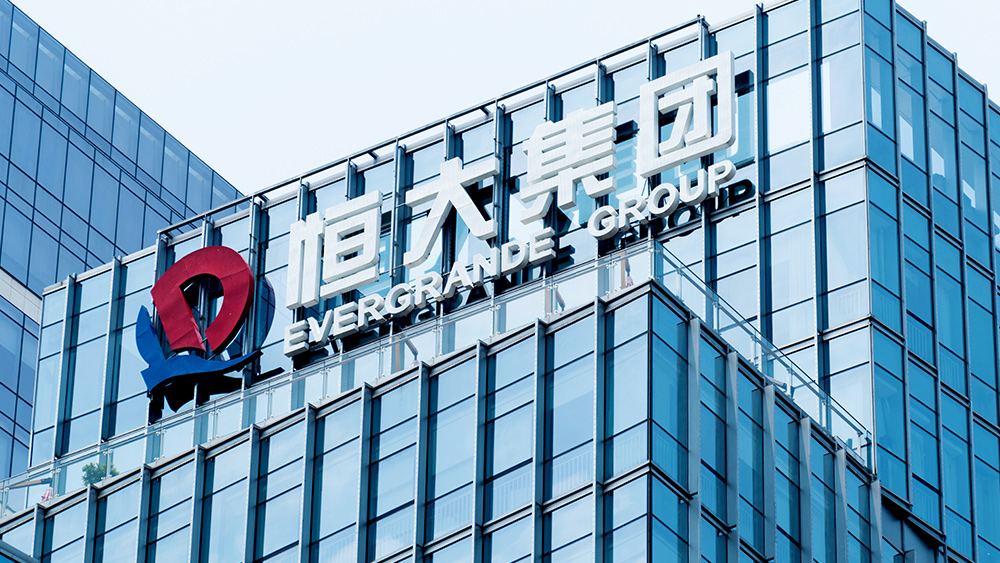
Evergrande Group, once hailed as one of China’s most prominent real estate giants, has experienced a dramatic fall that has sent shockwaves through both the Chinese economy and global financial markets. On August 17, Evergrande filed for bankruptcy protection in the United States after two years of distress.
Much of Evergrande’s corporate debt was held by American and European institutional investors. The Chinese company first defaulted on its bond in 2021.
Founded in 1996 by entrepreneur Xu Jiayin, Evergrande began as a property developer in Guangzhou and swiftly expanded its operations, becoming a symbol of China’s rapid urbanization and real estate boom.
During its ascent, Evergrande embarked on an ambitious expansion strategy, acquiring land at a staggering pace and becoming involved in various sectors such as electric vehicles, tourism and healthcare.
Its growth was fueled by heavy borrowing and pre-sales of apartment units before construction even began, a common practice in China’s real estate industry. This approach allowed the company to generate substantial revenue and maintain high levels of debt.
The company’s aggressive expansion led to it being listed on the Hong Kong Stock Exchange and joining the ranks of China’s major conglomerates.
However, the supply of urban residential real estate eventually outstripped demand.
When demand stumbled, Evergrande’s creditors realized the company could no longer make its loan payment. (Related: Evergrande DEFAULTS – Contagion risk will spread to crypto, institutional investors, pension funds and more.)
Customers found themselves staring at half-finished buildings they might never be able to live in, despite making sizable deposits on attractive pre-construction deals.
In July, Evergrande reported a net loss of more than $113 billion in 2021 and 2022. The group’s liabilities stood at almost $340 billion at the end of 2022, with $85 billion of borrowings. The developer had about $2 billion in total cash at the time.
China’s government, concerned about the potential systemic risks posed by the company’s financial health, introduced a series of regulations to rein in the real estate sector, including restrictions on borrowing and property sales.
As a result, Evergrande faced liquidity issues and struggled to meet its financial obligations. Reports emerged of unpaid debts to suppliers and delayed construction projects, leading to protests from homebuyers who were left in limbo.
The situation worsened as concerns about the company’s solvency grew, sending shockwaves through global markets and sparking fears of potential financial contagion.
China’s solution to Evergrande crisis has only created more problems
The Evergrande crisis has highlighted the challenges China faces in balancing economic growth with financial stability. The Chinese government has taken steps to prevent a disorderly collapse of the company, urging local authorities to support homebuyers and suppliers affected by the crisis.
Beijing perceived the massive debt accrued by the industry’s biggest players as an unacceptable risk for China’s financial system and overall economic health.
Authorities have gradually tightened conditions for developers’ access to credit since 2020, drying up sources of financing for firms already in debt.
The result was a wave of defaults – notably that of Evergrande – which undermined the confidence of potential buyers.
Fellow Chinese property giant Country Garden now risks defaulting on its bond payments next month after saying there were “major uncertainties in the redemption of corporate bonds.”
Beijing has also cut mortgage rates, slashed red tape and offered more loans to developers to bolster the sector.
The world is concerned about China’s deteriorating economy as stocks in the U.S. lower and bonds yielded higher. Many Western banks have slashed their estimates for GDP growth this year to below four percent.
The future remains uncertain, and the fate of Evergrande continues to hang in the balance.
Visit Collapse.news to read more stories about collapsing businesses around the world.
Watch this video that talks about Evergrande filing for U.S. bankruptcy protection.
This video is from the Puretrauma357 channel on Brighteon.com.
More related stories:
Evergrande has officially defaulted: now what?
Evergrande’s future in limbo amid debt repayment default.
China’s Evergrande indefinitely suspended from trading in Hong Kong Stock Exchange.
Sources include:
Submit a correction >>
Tagged Under:
bankruptcy, big government, borrowing, bubble, chaos, China, collapse, crisis, debt bomb, debt collapse, default, economic riot, Evergrande, finance riot, Guangzhou, market crash, money supply, panic, property developer, Real Estate, risk, Xu Jiayin
This article may contain statements that reflect the opinion of the author
RECENT NEWS & ARTICLES
COPYRIGHT © 2020 Debtbomb.news
All content posted on this site is protected under Free Speech. Debtbomb.news is not responsible for content written by contributing authors. The information on this site is provided for educational and entertainment purposes only. It is not intended as a substitute for professional advice of any kind. Debtbomb.news assumes no responsibility for the use or misuse of this material. All trademarks, registered trademarks and service marks mentioned on this site are the property of their respective owners.





